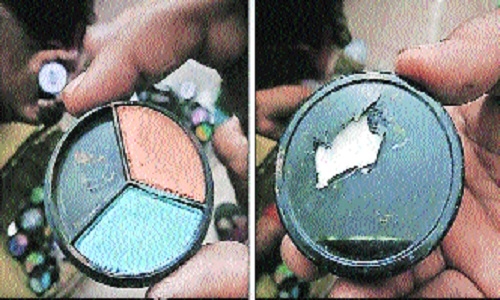The Dirty Alchemy
| Date :18-Sep-2023 |

By Kartik Lokhande :
In one of the cases dating back to first couple of months of 2020, following the arrest of a hotel management graduate in Lucknow, three persons were arrested from Nagpur in connection with ‘dark net’ vending of narcotics. Of these three from Nagpur, one was director of a pharmaceutical company dealing in sale and supply of drugs relating to treatment of sexual ailments. But, it was not an isolated case. Though it was busted in Nagpur, some more cases came to fore in other parts of Maharashtra. All these cases brought to fore how the tentacles of narcotics trade had spread to some shady pharmaceutical companies. The spread is not restricted to only processing of orders, but some undercover/illegal units also have come up to manufacture synthetic drugs instead of importing the costly contrabands. In the past few years, some actions by Narcotics Control Bureau (NCB) have brought to fore that some small undercover/illegal or even household units were engaged in manufacturing ‘drugs’ by using pure chemistry. And, Nagpur is not untouched.
According to sources, detection of Ganja is easier for enforcement agencies because of volume. However, the synthetic drugs are a bit difficult to detect because of trafficking of smaller quantities that fetch high value. Such small volume trafficking can take place via sea, road, or air route too. There was a case in May 2018, when NCB Mumbai had seized 360 gram of Cocaine from a postal parcel in Nagpur and had arrested two women. Cocaine was concealed in the base of eye-shadow palettes. It was a successful Intelligence-based operation. But, it also revealed how the traffickers were deploying various methods in an attempt to go undetected. The synthetic drugs come in various formulations. These include sedatives, pain-killers, or medicines targeting pain receptors in the central nervous system. They can be manufactured in any small unit, and are available on on-line pharmacies too. One of these is Methylenedioxy-Methamphetamine or MDMA, which is known as ‘Ecstasy’ or ‘Molly’ in drugs trade, and is known for altering mood and perception. Another one is Mephedrone or MD -- also known as ‘White Magic’, ‘Meow Meow’, or ‘Bubble’. Besides, there are many other options that come in the form of tablets, powder, or even paste.
“In the previous actions of NCB, involvement of lesser known pharmaceutical companies or undercover/illegal units had come to fore in Nagpur as well as Pune, Kolhapur, and areas near Mumbai, and in Gujarat. One who knows chemistry can easily manufacture synthetic drugs. This makes the challenge more complicated, and requires various machineries working vigilantly in co-ordination with each other,” said a police officer, who earlier worked with NCB. Since the advent of synthetic drugs, some shady undercover or illegal factories operating in Nhava Sheva, Navi Mumbai, and some coastal areas in Gujarat are manufacturing cheaper MDMA, Cocaine, LSD blots etc, said another source. Lysergic Acid Diethylamide or LSD is a synthetic chemical based-drug categorised as a hallucinogen. The odourless, colourless and tasteless substance is painted on small squares of paper (known as blots), which the consumers (mostly youngsters) lick or swallow. The officer, who wished to be unnamed, said that in one action taken in Mumbai when 2.5 tonnes of MD was seized, it was found that the said consignment was manufactured in three pharmaceutical companies including one in Nalasopara and two others in Gujarat. In Pune also, a similar ring was busted. In Kolhapur, a lawyer had a domestic set-up at his farmhouse to manufacture synthetic drugs, he added. “When one says that one is engaged in pharmaceutical manufacturing, one can easily evade attention. But, such trade abuses human resource in existing supply chain, not necessarily with the knowledge of the company owners,” said the source.
Besides, the things like ‘paste’ complicate the matters further. A former senior police officer told ‘The Hitavada’ that in Nagpur, Nashik, Mumbai, Thane, and other major cities of Maharashtra, there are certain ‘paan-kiosks’ that attracted particularly the younger crowd for a ‘peculiar taste’. This taste in ‘paan’ that is sold at a higher price than that of ordinary ‘masala paan’, could be attributed to that ‘fingerstroke of paste’. “Not many know what is in that paste. They just love it. Some of these ‘paan-kiosks’ also use ‘tablets’, which are addictive but the consumers who love that tang do not know what is used to make these tablets. Given these things, the challenge is enormous,” said the officer, who did not wish to be named. But, the challenge has technological edge too...